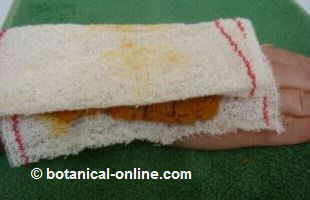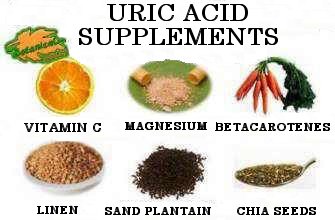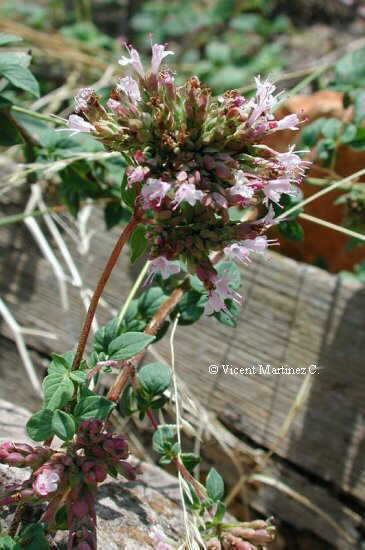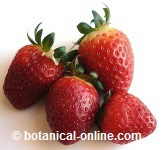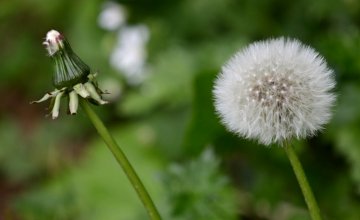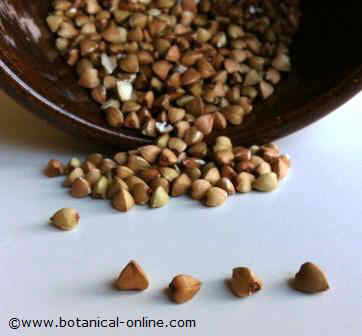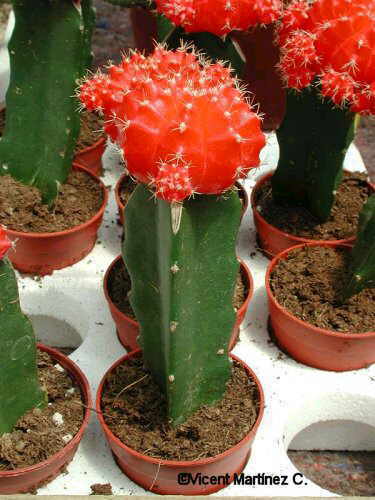Contents
- 1 Dangers of a liver diet detoxifying
- 1.1 NEGATIVE EFFECTS OF A LIVER CLEANSING DIET
- 1.2 Whom is this diet recommended for?
- 1.3 Contraindications of liver cleansing
- 1.4 Can we purify the liver during pregnancy and lactation?
- 1.5 Interactions of liver cleansing plants with medicines
- 1.6 Avoid doing liver cleansing badly
- 1.7 Why do you need to eat lots of fruits and vegetables?
Dangers of a liver diet detoxifying
NEGATIVE EFFECTS OF A LIVER CLEANSING DIET
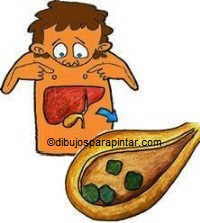
The liver is the organ responsible for the metabolism of food, medicines and debugging toxins. Drawing of ©Dibujosparapintar.com
Diet to cleanse the liver is a purification process which is based on three pillars: food, physical daily exercise to help debugging, and hepatobiliary treatment plants to promote liver function and drainage of the gallbladder.
Also it can be accompanied by some home remedies for liver, taking a preparation made with 1 tablespoon rosemary oil with lemon juice on an empty stomach.
The goal is to help restore the health of the body, knowing which foods are beneficial and eliminate bad habits that have led to this situation, as might be consuming toxic (tobacco, alcohol) or wrong foods in excess (sugar, sweeteners, syrups, soft drinks, flour, additives, or products that contain them).
Whom is this diet recommended for?
It is recommended for healthy adults following excessive or inadequate diet, when problems of bloating, headache, menstrual pain, fatigue, migraine, indigestion, etc appear.
Contraindications of liver cleansing
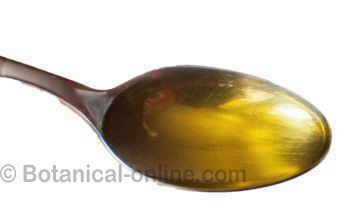
Taking oil when fasting dilates the bile duct and increases bile ejection. This helps to remove small stones.
Cleansing the liver has no contraindications, as it generally consists on removing industrial processed products and enhancing vegetables, soft cooking methods, etc.
This type of diet can be adapted to all types of diets based on age, person, activity, etc.
Furthermore, the remedies to cleanse the liver do have significant drawbacks. The use of medicinal plants and remedies for the liver is contraindicated in the following cases:
- Gallstones: People with tendency to generate gallstones should not take preparations of hepatobiliary plants, nor any remedy to expel stones. It is a dangerous practice that, in case of large stones, it can obstruct the bile duct (choledocholithiasis) and could lead to severe pancreatitis (requiring hospitalization).
- If you have gallstones oil remedies are not recommended when fasting, nor Epsom salts, nor other preparations without consulting your doctor.
- In case of gallstones, one should perform an abdominal ultrasound. If the stones are less than 4 mm in size, liver diet can be performed. If they are larger stones it is dangerous and it is not recommended.
- Biliary colic: If an attack of colic occurs, you should see a doctor.
- Severe liver diseases: When your liver has a disease, you should not selftreat with liver herbs. Some of these plants are contraindicated because they can interact with other medications specific to cirrhosis or hepatitis, for example.
- Diabetes: If you are taking medication to regulate blood sugar or diabetes, you should consult with your doctor before taking plants to the liver. Some plants can affect hepatic metabolism of glucose (hypoglycemic effect). We advice you to visit doctor who works with a dietician specialist in clinical nutrition.
Can we purify the liver during pregnancy and lactation?
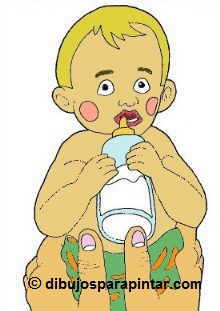
Drawing from © Dibujosparapintar.com
Do NOT use hepatobiliary plants during pregnancy and lactation.
Most medicinal plants are contraindicated in pregnancy. The effect of medicinal plants is proportional to the weight of the individual. For the fetus, some substances could cause problems in pregnancy.
Problems involving pregnancy should preferably be treated through techniques such as physiotherapy, relaxation, or adequate diet. Among the most common damages we have: heartburn, constipation, fatigue or gestational diabetes.
During lactation, liver-biliary plants can change the taste of milk and the principles of the plants can pass to the baby.
Women who are in pregnancy or lactation can perform a liver cleanse by means of an abundant supply of vegetables, fruits, nuts, seeds, virgin oil (cold-pressed), mixed with grains and legumes.
In non-vegetarian diets, they can include foods of animal origin such as oily fish. Besides adequate exercise is recommended, chewing and peaceful atmosphere. (Consult a dietitian to prevent nutritional deficiencies to occur)
Interactions of liver cleansing plants with medicines
Hepatobiliary plants combined with other drugs may produce toxic substances. Hepatobiliary plants are: black radish, boldo, dandelion, milk thistle, fumitory, rosemary and artichoke.
The most important interactions have been observed with specific drugs when treating liver diseases and drugs for depression.
Moderate interaction drugs are: cytochrome P450 2C9 (CYP2C9), amitriptyline, diazepam, zileuton, fluvastatin, ibuprofen, irbesartan, losartan, phenytoin, piroxicam, tamoxifen, tolbutamide, torsemide, warfarin, among others.
If taking any herbs, medications or supplements, you should consult a professional before starting supplementation, because certain substances can interact with each other, losing their effectiveness.
Avoid doing liver cleansing badly
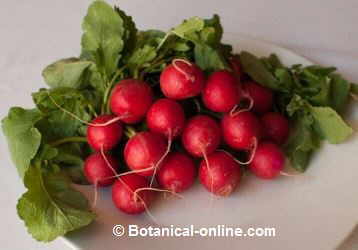
Photo of radishes. Fresh foods are rich in antioxidants
The supervision of a nutritionist is always recommended when these diets are done. The liver cleansing diet requires abundant consumption of vegetables and fruits.
Besides, being healthy foods, this recommendation is expressed because of the high requirement of antioxidants that has the liver in its detoxification process.
Why do you need to eat lots of fruits and vegetables?
One of the most common mistakes when performing liver cleanse is that people downplay this food group. To eliminate toxins, the liver must necessarily perform two processes:
- Activation phase: Toxic are oxidized by cytochrome P450. Once oxidized, the resulting metabolite is more dangerous than the first substance. To perform these functions, the liver needs energy, protein, minerals and vitamins. It is necessary to meet the energy and nutritional needs for the liver to detoxify.
- Conjugation phase: The (toxic) oxidized metabolites formed in step 1 should be neutralized by the action of antioxidants. Without antioxidants liver detoxification can not be performed.
A diet without fresh food would be counterproductive., As it would happen if too little protein is ingested or deficiencies of other nutrients occur.
![]()
![]() Go on reading: Menu for a congested liver
Go on reading: Menu for a congested liver
![]() More information on liver diseases
More information on liver diseases

